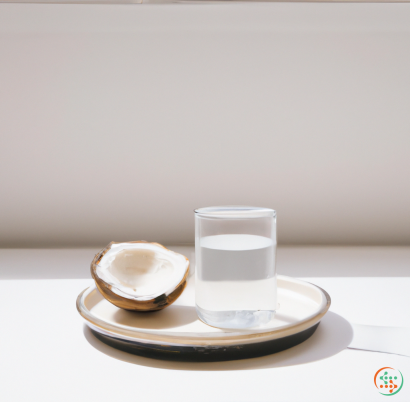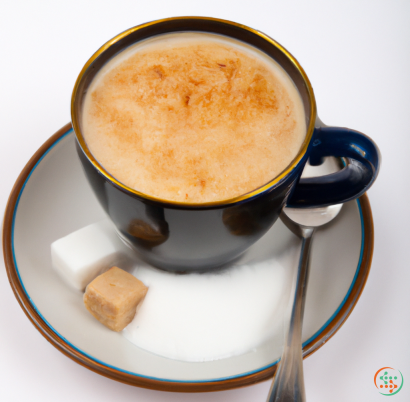Chicory Coffee
If you’re looking for a unique and flavorful caffeine free alternative to your regular cup of joe, then chicory coffee is just what you need. In fact, you may already be familiar with it and not know it! As the name implies, chicory coffee is made with chicory root, which has long been used as a caffeine-free coffee alternative. Whether you’re looking to give your morning cup a flavor boost or move away from your daily caffeine habit, chicory coffee is the perfect solution.
But what is chicory coffee? Chicory is a plant that is native to Europe and Asia, but is now grown in other parts of the world as well. The root is brownish-black in color and has a strong, slightly earthy aroma. When dried and ground into a fine powder, it can be used to make a delicious coffee-like beverage. The flavor is similar to that of traditional coffee, but with a slightly sweet, earthy aftertaste. While the taste can vary from person to person depending on individual preferences, most people find that it is an enjoyable and flavorful alternative to regular coffee.
To make chicory coffee, you can use either a traditional coffee brewing method such as a French press or automatic drip brewer, or try something a bit more unique like a cold-brew. For cold-brew, you’ll want to steep your chicory root in a pot of room-temperature water overnight, then strain it the next morning and enjoy. This method results in a smoother, less acidic cup than its hot-brewed counterpart. It’s also a great way to reduce bitterness and get the most out of the chicory flavor.
Chicory coffee has been around for centuries, dating back to Aztec and Mayan cultures who used it as a coffee substitute. Over time, its use has spread throughout the world and is still popular today in countries like France, Spain and Italy, where it is often combined with coffee for a flavorful caffeine-free alternative. It’s also a great choice for coffee-lovers looking for a caffeine-free option in the evening or for those who can’t tolerate caffeine.
In addition to its delicious taste and distinctive structural characteristics, there are several potential health benefits associated with drinking chicory coffee. For example, it is rich in minerals such as zinc, iron and manganese, which can help support overall health. Additionally, many believe that chicory can help improve digestive health by stimulating digestive enzymes and increasing bile production. There is also evidence that suggests that chicory consumption can protect against oxidation and free-radical damage thanks to its high content of polyphenols. And because chicory contains inulin (a soluble dietary fiber), it can help keep you feeling fuller for longer, reduce cholesterol and even help control blood sugar levels.
In summary, chicory coffee is a delicious and unique caffeine-free alternative that is packed with a host of potential health benefits. Whether you’re looking to switch up your morning routine or need a caffeine-free option for your daily cup, chicory coffee is a tasty and nutritious choice. With its robust flavor and deep earthy notes, chicory coffee is sure to become a favorite in no time.
As part of the culinary world, coffee is appreciated and enjoyed by people almost everywhere on earth. All coffees share certain aspects; however, one type in particular, known as chicory coffee, stands out due to its unique flavor and process. This article dives into the science behind chicory coffee, from farm to table.
Chicory coffee begins from the humble roots of the field or garden where a plant known as ‘chicory’ is grown. Chicory is a perennial plant that belongs to the dandelion family, meaning it has a deep taproot and has bright blue flowers. It is not a coffee bean at all. Instead, chicory root is roasted, ground, and brewed just like traditional coffee beans.
The growth and harvesting of the chicory root is an integral component of the process. The plant starts with small, light seeds that are planted one to two inches deep. The chicory seedlings need full sun and moderately moist soil and once they emerge they compete vigorously with weeds, which highlights the need for timely weeding and fertilizing in order to support the crop.
Once the tiny chicory leaves reach maturity, they are harvested by hand. The roots are then dug up, trimmed to the correct size, and soaked overnight to restore moisture to the plant. After the water has been substantially reduced, the roots are then chopped and dried in kilns to prepare them for roasting.
The roots can also be dehydrated in the air and made into a powder, or “cut and sifted.” Most commonly, the dried roots are taken to small, independent mills which use a traditional spinning stone wheel, often still powered by a water wheel, to grind the roots into a powder. The amount of time necessary for the grinding varies based on how fine the powder needs to be; modern machines can now be used to produce a finer grind.
During the roasting step, the chicory root is heated to around 190- 200°C while in a metal drum. During this step, the root undergoes a complex series of chemical changes that help to release aromatic compounds and create the desired flavor profile. To provide sweetness, a small amount of sugar might be added during the roasting process.
Once the desired flavor and aroma are achieved, the roasted chicory root is allowed to cool before it is ground into a powder. This powder can then be brewed according to the same process for any other brewed coffee. The finished blended chicory brew is then filtered, packaged, and shipped around the world.
In addition to being enjoyed as a fantastic cup of coffee, chicory is also used as a food additive, particularly in lieu of cane sugar, to provide sweetness and texture to baked goods, jams, and ice cream.
Chicory has an impressive history of use around the globe and is one of the oldest known plants to be consumed by humans. Archeological evidence suggests that this plant is native to the Mediterranean and has been used as a staple food in many regions of Europe, Asia, and North Africa.
Chicory has historically been seen as having medicinal properties, but its popularity as a coffee substitute did not appear until the 19th century. This is largely attributed to Napoleon's blockade of British ports with his naval fleet, which blocked vital imports like coffee beans that were necessary for traditional coffee once tea had become expensive. Chicory root became a viable - and much more affordable - alternative.
Since then, chicory coffee has held its own place in the industry and even experienced a surge in popularity due to its lower caffeine content and the health benefits it holds over other coffee substitutes, such as the popular grain coffee. Popularized by consumers looking for a caffeine-free morning pick-me-up or an evening beverage option, chicory has become a staple of many coffee lovers.
In conclusion, chicory coffee is an interesting type of coffee that has been enjoyed throughout the years and will continue to be appreciated by coffee lovers. Its unique flavor and lower caffeine content make it an appealing substitute for those who are monitoring their caffeine intake. It has also grown in popularity due to the health benefits that it has over other coffee alternatives. From the growth of the chicory root to the packaging and shipping of the coffee, the entire chicory process is steeped in science and tradition.
| Vitamin B3 | 0.22 mg |
| Calcium | 0.004 grams |
Daily Value 1.3 g
|
| Iron | 0.05 mg |
Daily Value 0.018 g
|
| Magnesium | 0.003 grams |
Daily Value 0.4 g
|
| Phosphorus | 0.003 grams |
Daily Value 1.25 g
|
| Potassium | 0.035 grams |
Daily Value 4.7 g
|
| Sodium | 0.007 grams |
Daily Value 2.3 g
|
| Zinc | 0.01 mg |
Daily Value 0.011 g
|
| Copper | 0.01 mg |
Daily Value 0.9 mg
|
| Manganese | 0.01 mg |
Daily Value 0.0023 g
|
| Selenium | 0.1 ug |
Daily Value 0.055 mg
|
| Total Sugars | 0 ug |
per 100g
|







